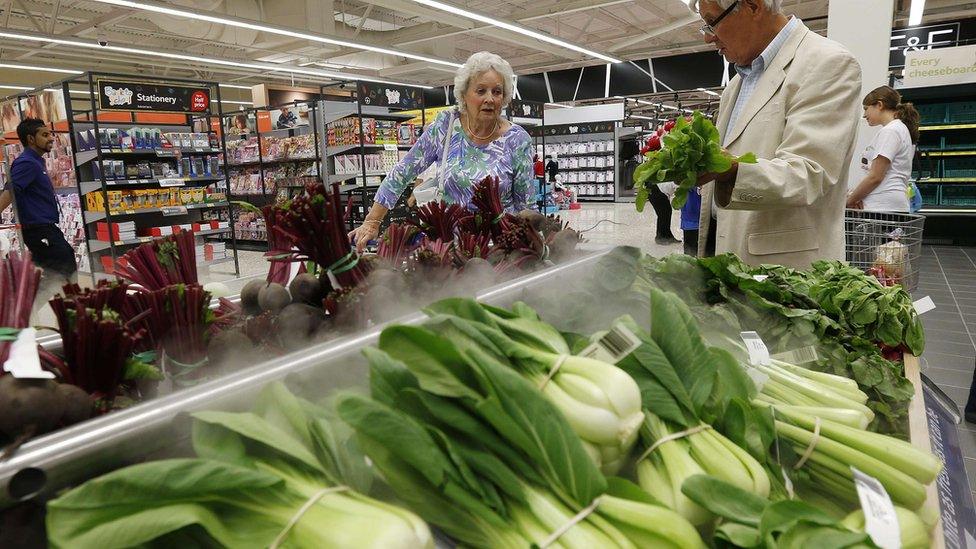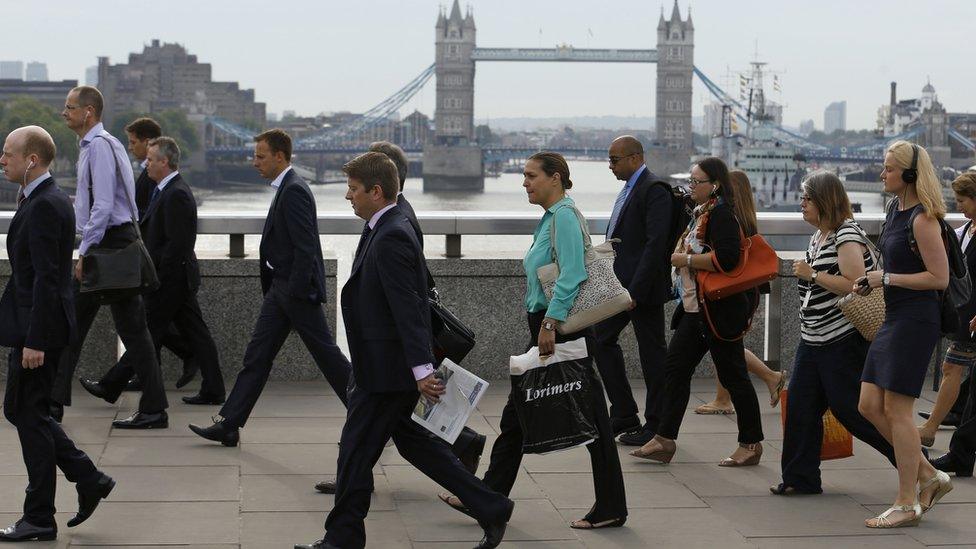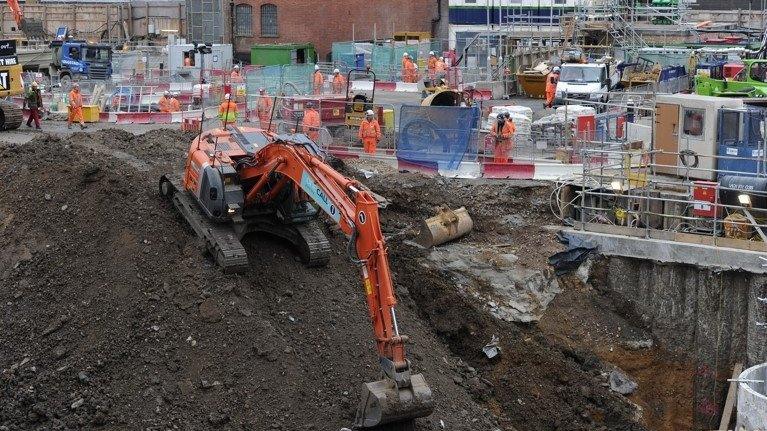UK inflation rate stays at 0.3%
- Published

UK inflation as measured by the Consumer Prices Index was unchanged at 0.3% in February, according to the Office for National Statistics (ONS).
Food prices saw the biggest rise, particularly vegetables, but transport costs fell, the ONS said., external
Annual inflation has been below the Bank of England's 2% target for two years, and last year it was zero.
The Bank said last month that it expected inflation to stay below 1% this year.
Deficit woes
Other ONS figures, external published at the same time indicated that Chancellor George Osborne is close to missing his target for cutting the country's budget deficit in the 2015-16 financial year.
Government borrowing fell less than expected in February, coming in at £7.1bn, according to the ONS.
That brings the total deficit for the 11 months of the year so far to £70.7bn, as against the chancellor's full-year target of £72.2bn.

Analysis: Anthony Reuben, business reporter
The borrowing figures mean the government can only borrow another £1.5bn this month if it is to avoid overshooting the forecast set by the Office for Budget Responsibility at the time of last week's Budget.
But all is not yet lost for the chancellor, because the OBR predicts he will be saved by revisions.
"We continue to expect borrowing to fall faster in February and March than over the year to date, although this may not be reflected fully in the initial outturn data due in April," it said.
This morning's ONS release revised down January's borrowing by £2.6bn, for example.
So even if next month's figure overshoots the forecast, we may have to wait a bit longer for confirmation.

'Too ambitious'
"While there is gradual progress in reducing the deficit, the timetables outlined in the Budget last week remain too ambitious, and the return to surplus may take a bit longer than the chancellor hopes," said David Kern, chief economist at the British Chambers of Commerce.
"The difficulties in implementing some of the planned budget cuts will increase the problem."
Under the separate Retail Prices Index (RPI) measure, which includes housing costs, inflation was 1.3% in February, also unchanged from the previous month.
The ONS said the biggest downward pressure on the inflation rate came from the transport sector, with price changes for items such as road passenger transport, second-hand cars and bicycles.
Toothpaste and other personal care products also saw a fall in price.
However, higher prices for vegetables, milk, cheese and eggs made up for those declines.
Hotel accommodation and restaurant bills also saw increases, as did the price of furniture and household equipment.
- Published16 March 2016

- Published11 March 2016
